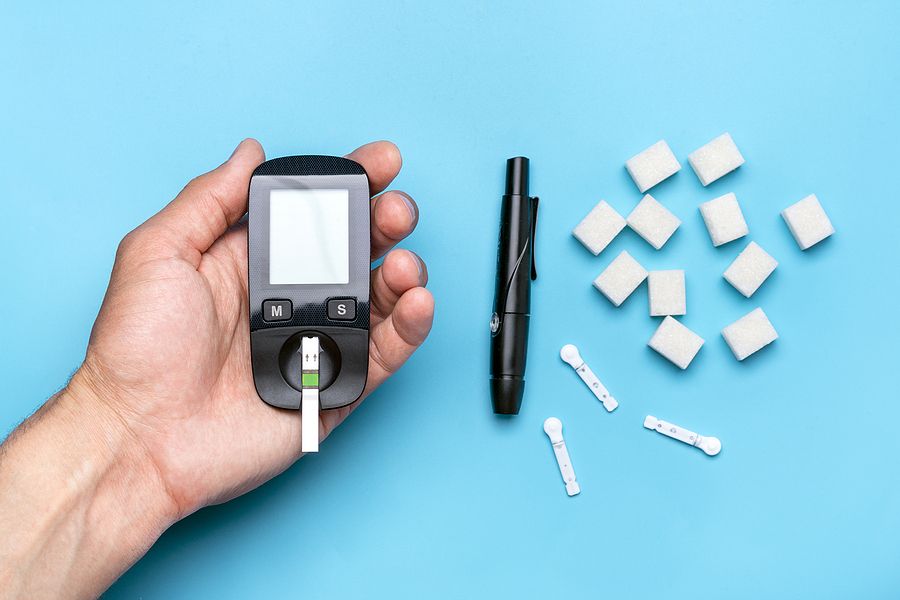What is the Connection Between Diabetes and Oral Health?
Posted by Dr. Ramsey on Mar 13 2023, 06:43 AM

Diabetes is a chronic condition that affects the body’s ability to process insulin, which is a hormone that helps regulate glucose in the body. People with diabetes either don’t produce enough insulin or can’t properly use the insulin that their bodies do produce. If left untreated, high blood glucose levels can damage the nerves in the body, including those in the feet, hands, and mouth. This can lead to painful, dangerous side effects throughout the body.
Symptoms of untreated diabetes may include frequent urination, hunger, weight loss, fatigue, blurred vision, tingling in the extremities, and increased thirst. In extreme cases, diabetes can also lead to ulcers, gangrene, amputation, and even death. It’s important to take control and manage your diabetes before these serious side effects occur.
Maintaining a healthy oral environment may help prevent complications from diabetes affecting the mouth. This includes brushing with fluoride toothpaste, flossing daily, and seeing your dentist for routine exams and cleanings. This will help reduce your risk of developing issues like gum disease, tooth decay, dry mouth, and more.
How Does Diabetes Affect Your Mouth?
If you are a diabetic, you need to be aware of the connection between diabetes and your oral health. This is because dry mouth is a common side effect of diabetes. A dry mouth is caused by a decrease in saliva production. Saliva is important because it helps your mouth stay healthy by washing away harmful plaque from your teeth, neutralizing acids, and keeping infections at bay. When your body does not produce enough saliva, these essential functions are compromised. This can lead to tooth decay and other oral health issues. People with diminished saliva production are more susceptible to gum disease because the bacteria in your mouth thrive when the pH balance is altered. Bacteria cause gingivitis, which is the beginning stage of periodontal disease. Some people with type 1 diabetes are more prone to developing periodontitis than others. The following symptoms may be signs of early-onset periodontitis: redness around the gums, swollen gums, bleeding gums when brushing or flossing, bad breath, loose teeth, tooth sensitivity, gum recession, and tooth loss. If you have diabetes, the best way to protect your oral health is to keep a close eye on your blood sugar levels and see your dentist regularly for checkups and cleanings. You should also practice good oral hygiene at home, which includes brushing at least twice a day and flossing once a day. If you use an over-the-counter mouthwash, choose one that contains fluoride. Fluoride strengthens your tooth enamel and helps protect against cavities. At your next visit, ask our dentist about the best toothpaste to use if you have diabetes. They may recommend toothpaste formulated for people with this condition.
Visit Next Level Dental at 693 President Pl #101, Smyrna, TN 37167, to learn more about our dental services. Contact us at (615) 459-6354 or schedule an appointment online for any queries.
Share On

Are you a sugar addict? Learn how it affects your teeth
Diabetes is a chronic condition that affects the body’s ability to process insulin, which is a hormone that …

Do Dental Implants Function Like Natural Teeth?
Diabetes is a chronic condition that affects the body’s ability to process insulin, which is a hormone that …

Mouthwash vs Teeth Brushing: Which One Is It?
Diabetes is a chronic condition that affects the body’s ability to process insulin, which is a hormone that …
